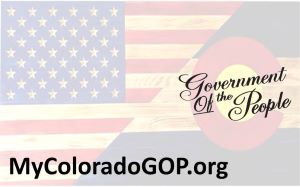Our Founding Document Is As Radical Now As It Was In 1776
By THOMAS KRANNAWITTER
As we sip beer and watch fireworks this 4th of July, think of all the freedoms we enjoy: the freedom to speak our mind, to pray in a church we choose or not pray at all, to keep what we produce, to vote fellow citizens into or out of government office. No people ever have enjoyed the freedoms we have.
Further, think of all the good Americans have accomplished. They instituted the first real government authorized entirely by the consent of the governed. They provided strict protection for property rights in their fundamental law. They solved the problem of religious persecution. They ended slavery at unimaginable costs in blood and money and sacrifice.
The result of the American venture in self-government is the most prosperous, innovative, free society ever known. So while you bark at your smart phone because web pages load too slowly, or complain that your favorite gourmet cupcake shop has moved locations, think of how all these wonderful things came to be. They came because of a few simple, yet radical ideas articulated most beautifully in our own Declaration of Independence:
Truth
The premise of the Declaration is that objective truth exists and the human mind can discover it. The Declaration's references to the "laws of nature and of nature's God" and "self-evident truths" assume that:
• Nature is a larger whole of which man is part.
• Nature is rational, intelligible, knowable.
• Nature, including human nature, contains moral and political truth that can be known through investigation and study.
Equality
It's true that "all men are created equal" because:
• Every human being is equally human.
• Human beings are the only compound being: part appetite, part reason and free-thinking mind. Human beings alone can choose right over appetite.
• No human being is a god, and none is a beast. That's why it's wrong to treat some men as if they were gods, in the case of kings, and others as if they were beasts, in the case of slaves.
Natural Rights
The natural rights to life, liberty and pursuit of happiness are inherent in human nature because every human being has the nature of a living being that can think and choose freely in the pursuit of happiness.
• Natural rights don't come from government or laws.
• Natural rights belong equally to every individual human being, because every human being by nature owns his or her individual mind, body and life.Natural rights don't depend on group membership, skin color, gender, religious views, or socio-economic status.
• If there're no natural rights, then nothing is wrong. But we know wrongs exist, and therefore natural rights exist too.
Purpose Of Government
The only legitimate purpose of government is to protect the individual natural rights of those who are consenting citizens.
• Government requires the consent of the governed because "all men are created equal" and no person is authorized by nature to rule others without their permission.
• Government should offer effective protection from foreign threats to our natural rights, in the form of an adequate military, as well as domestic threats, in the form of police and a criminal justice system.
• When government takes from some in order to give to others, it is violating the natural rights of those from whom it takes and failing its basic purpose.
People May Alter Or Abolish Government
When a government violates rather than protects the natural rights of its citizens, the people may peacefully alter their government by adopting new laws or even a new constitution.
• When there's no peaceful remedy for a government violating natural rights, the people may abolish government and replace it. This is the natural right of revolution.
• Government has only those powers the people have given it.
• It is politically healthy to remind politicians that America was born in revolution, and those in government work for the people, not vice versa. Americans have the right, if they choose to exercise it, to adopt an entirely new Constitution (we've already adopted two, the Articles of Confederation being the first), and every politician and government bureaucrat would be out of a job instantly.
Trust
The signers of the Declaration concluded with a solemn pledge: their lives, fortunes and sacred honor. They made this pledge not to God, and not to their fellow countrymen. They made the pledge to each other.
• The signers of the Declaration trusted one another to stand unified for the ideas and cause they were advancing. They knew if some betrayed the cause of freedom, the American Revolution would fail and most would die the death of a British traitor.
• The American founding was, literally, a "freedom trust" among citizens. They trusted each other, but not those in government, which is why they went on to write and adopt the U.S. Constitution. Citizens have no power over the lives, liberty or property of each other, but government does.
Only government has an IRS, jails and electric chairs. That's why we should use the "chains of the Constitution" to "bind down from mischief" those in government, as Jefferson once remarked.
If we want to preserve the freedoms we cherish, and reclaim those we have lost, let us once again stand united in mutual civic trust upon the basic ideas of freedom. Let us be worthy of the 4th of July by being free men and women.
Krannawitter is president of Civilyst LLC, a company specializing in civic messaging and educational products.
